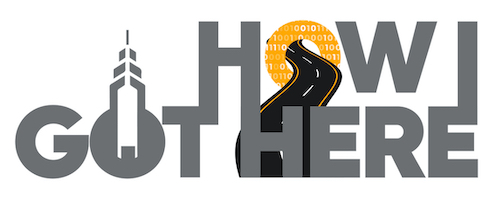If you ask DC’s Charlotte Kies what she does now, she’d tell you she’s a software developer. But for the first few decades of her life, the answer — a professional clarinetist and university-level music educator — was very different.
Kies had always been a clarinetist, she said, and made music part of her life from childhood as her parents were professional musicians and professors. Intent on having a career that wouldn’t involve a 9-5 format, she decide to pursue music and received bachelor’s, master’s and doctoral degrees in clarinet performance.
“[Music] was my personality, it was my lifestyle,” Kies told Technical.ly. “It was everything I did. I woke up and I breathed music, that was just what I did.”
While pursuing her advanced degrees, she found a particular passion for teaching and realized she loved that even more than performing. So, in addition to some performing roles, she became an adjunct professor of music at Lee University and the University of Tennessee at Chattanooga.
But while she loved teaching, she had ethical issues with the success of her students after graduation. She was tasked with bringing in more students but felt like they were graduating without many job prospects. Coupled with a lack of upward trajectory and the fact that she wasn’t teaching the kind of music she wanted to, Kies realized she needed a career change, even though she had been lucky enough to keep her job during the pandemic.
So, Kies decided to look into tech, as her sister is a software engineer and she had heard of a few musicians who made successful pivots. Plus, Kies loves languages and felt like going to a bootcamp would be reminiscent of completing any of the immersive language programs she’s already done.
“I spent a lot of my time in my undergrad and my childhood learning and celebrating languages,” Kies said. “Technology just seemed like a really great place and way to use my interest.”
Pivot notes
Kies enrolled in the Tech Elevator bootcamp in September 2021. She largely attributed her successful completion of the program to her prior language-learning experience, as well as the practice habits that her music studies required. She is currently an engineer at the IT firm Slalom Build, where she works as a consultant and moves between projects and companies every few months.
Still, changing careers — especially from one so integral to her identity — was a difficult transition. Three degrees later, she was changing her mind about something in which she invested so much time and energy. Despite having chosen to leave, Kies said she felt ashamed when she had to tell former classmates, teachers and mentors she was no longer pursuing music.
“I identified as a musician and all of a sudden, I wake up and I’m not one anymore, I’m not working as one,” Kies said. “It was really hard at first. I did experience shame. It felt like a failure.”
For Kies, it took someone reminding her that it was okay to want something different than what she wanted at 12, 18 or 25. She said she had to shift her perspective to remember that it was okay to make a change.
Another thing that helped was how much she loved the tech field. At work, she does multiple things that make her smile every day. She has more flexibility and the option to work remotely (and, she said she would be remiss not to mention: a much better salary, with options for healthcare, and generally more financial security). Plus, it’s an industry in which she gets to constantly learn and do new things.
As for music, although Kies doesn’t play anymore, she still thinks a lot about how music shaped her outlook. Before changing careers, she also ran a website called Clarinet Music By Women that catalogs, well, clarinet music composed by women, that she thinks she’d like to return to. She’s not entirely sure where she wants to go next with her tech career but is considering getting certified as a scrum master.
Still, she hasn’t given up music entirely. Kies said her previous life as a music teacher and academic helps her with so many aspects of her new career, including the ability to work on a team, written and verbal communication skills and the evergreen knowledge that practice makes perfect.
“When you switch careers, you’re not eliminating skills, you’re not eliminating a part of your life. You are adding,” Kies said. “This is an additive process.”

This is How I Got Here, a series where we chart the career journeys of technologists. Want to tell your story? Get in touch.
Before you go...
Please consider supporting Technical.ly to keep our independent journalism strong. Unlike most business-focused media outlets, we don’t have a paywall. Instead, we count on your personal and organizational support.
Join our growing Slack community
Join 5,000 tech professionals and entrepreneurs in our community Slack today!

Entrepreneurship is changing, and so is the economic development behind it

Tech Hubs’ new $210M funding leaves Baltimore and Philly off the table

Here’s what to know before using AI to craft your brand’s social media posts


